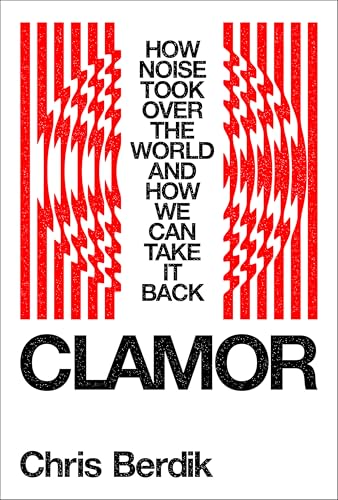This week’s selected media, May 11, 2025: Racism, The Case for Reparations, Clamor
This week I finished:

Racism: A Very Short Introduction, by Ali Rattansi: This book follows up last month’s The Myth of Race. I’ve read a lot about slavery, abolitionism, Nazism, what people call race, and related topics but haven’t read scholarly books about the history of racism.
Racism seems just a part of human society, like marriage and school. In principle I knew it had to have started at some time, since our ancestors before leaving Africa likely didn’t practice it.
These two books trace it to Europe around the Inquisition. The two books overlapped enough that I believe I started to get a feel for the historical patterns they described. It’s disheartening to see how involved some significant historical figures were. I knew about Henry Ford and others, but to see Rockefeller, Mellon, and peers all together clarified how ingrained eugenics was. The books didn’t try to give their motivations or perspectives.
The books also didn’t distinguish white supremacy from racism, for example India’s caste system or Japan’s imperialism. I certainly witnessed racism in China.
My main reason for reading these books is to understand what caused racism. If there is no scientific basis for what people call race, then simply to say some people become racist doesn’t explain it. To trace it to when Europeans were poised to colonize the Americas and enslave Africans doesn’t explain why Europeans were uniquely so poised if they aren’t different. I’m writing up my explanation for my next book, as regular readers have read me allude to before.

The Case for Reparations, by Ta-Nehisi Coates: I recently read Coates’s The Message and a while ago read Between the World and Me. Watching and listening to interviews with him about The Message led me to this piece that he said made his name in journalism.
Usually I don’t include articles in my Sunday This week’s selected media posts, but at 16,000 words, it’s almost a book.
Reading the piece led me to re-watch podcast guest Coleman Hughes‘s congressional testimony in opposition to Coates’s. I plan to include a chapter on reparations in my next book too.

Clamor: How Noise Took Over the World—and How We Can Take It Back, by Chris Berdik: I can’t count how many times I’ve said, “Noise pollution is pollution,” so I looked forward to reading this book. It shares statistics of how many of us have suffered permanent hearing damage. Young children do, and not from natural noises. Our machines and built environments do it. As I’m typing these words, I hear a police car’s siren, cars honking, a jet overhead, tires against the road, and car engines revving.
As annoying, impossible to ignore, and effectively omnipresent as these sounds are in my life, this book made me more conscious of how much noise there is. I listened to it on my phone on the way to an event. It woke me up to how loud sounds from the street were. It made me conscious of how loud the event was. It was just a cocktail party, but people nearly had to scream it was so loud. I looked at the room and saw some of the problems that made it so loud, the hard surfaces that reflected sound, the lack of soft surfaces or plants that might absorb it.
It also conveys nuance. A major point is that the issue of noise pollution isn’t just volume or decibels. The type of noise matters. Chris Berdik pointed out that we can make delivery drones quiet, but their whine is so annoying, it doesn’t matter. Sometimes offices can be too quiet, in that any noise breaks your concentration, though there are bigger problems in offices, especially open ones.
One of the bigger pictures is the amount of research and design going into noise and sound. Oddly, he didn’t cover sirens. In the time between my writing three paragraphs ago and now, a different police siren emerged.
Read my weekly newsletter

On initiative, leadership, the environment, and burpees